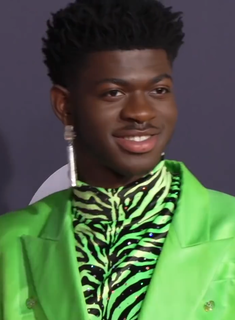A Quote by Norman Finkelstein
When you are a people's movement, you have one thing. Your only asset is people. And you have to deal with real people. Not the people of your imagination. Not the people you wish people would be. But people as they exist actually out there in the real world.
Related Quotes
People in big studios are like, 'People want to see other people who are skinny and happy and amazing.' But I think, nowadays, they are realising that what sells is real people from all different backgrounds, ethnicities, cultures and size. People want to see themselves represented on screen, and it's a real cool thing for everyone.
The loss of seriousness seems to me to be, in effect, a loss of hope. I think that the thing that made people rise to real ambition, real gravity was the sense of posterity, for example - a word that I can remember hearing quite often when I was a child and I never hear anymore. People actually wanted to make the world good for people in generations that they would never see. It makes people think in very large terms to try to liberate women, for example, or to try to eliminate slavery.
I had said that Le Guin's worlds were real because her people were so real, and he said yes, but the people were so real because they were the people the worlds would have produced. If you put Ged to grow up on Anarres or Shevek in Earthsea, they would be the same people, the backgrounds made the people, which of course you see all the time in mainstream fiction, but it's rare in SF.
People would like to place a standard on our show that doesn't exist. We're not set up for reporting; we don't have an apparatus for that. We're discussing things that hopefully people might get something out of, but it's wildly inconsistent. Just because we hit on points that resonate, or people think are real complaints - that doesn't make us journalists.




































